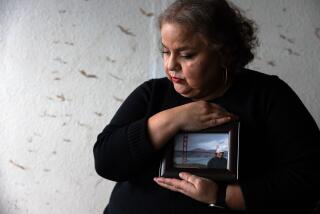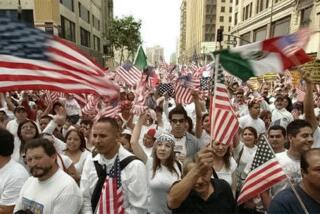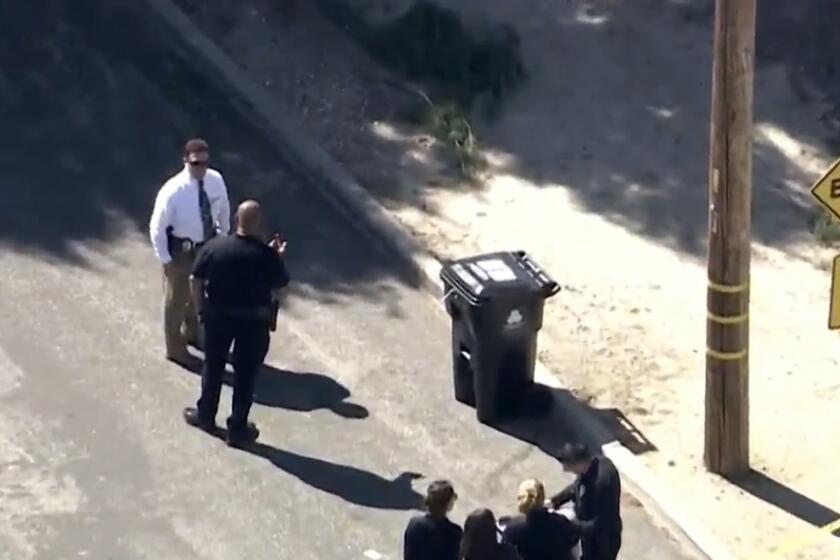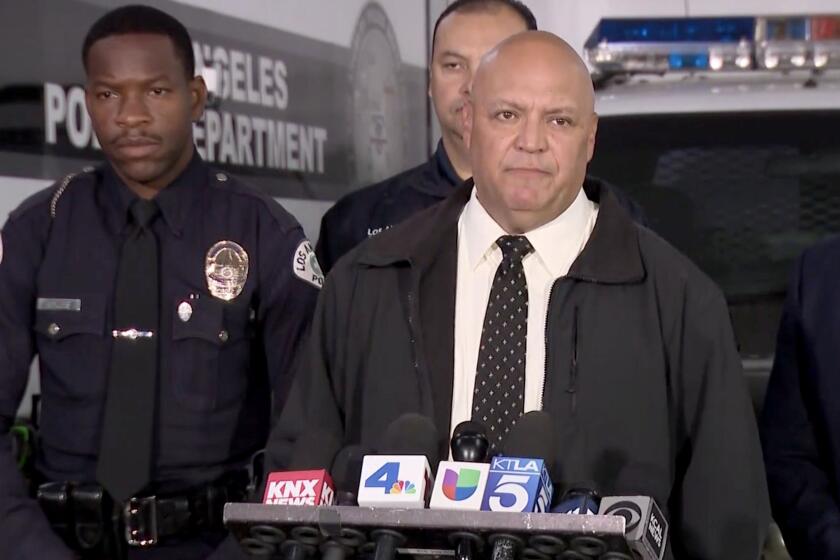As Supreme Court decision looms, undocumented Asians say they must speak up or risk losing DACA
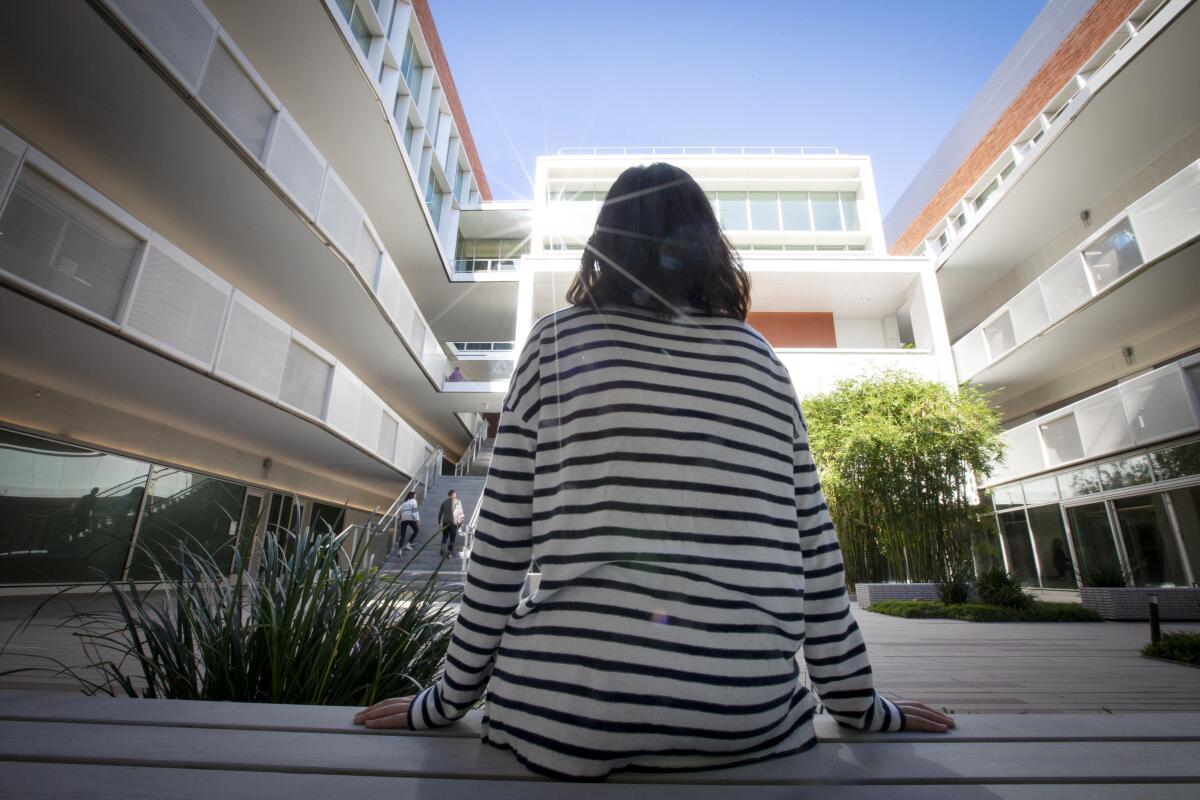
Dean Santos arrived in the U.S. from the Philippines when he was 12 and quickly took to American culture. In his teenage years in San Bruno, he played sword and fantasy card games with other kids, watched “South Park” and joined the high school wrestling team.
When he got to college, he became a member of the student government. By the time he was 20, he had begun to help organize young people in the country illegally.
“I taught them how to do lobby visits, how to set up meetings with elected officials, how to tell our stories to make ourselves heard,” Santos said.
For Santos, who is now 29, it was personal: He has been in the U.S. without legal status since shortly after he arrived as a boy.
In the constellation of activism for those in the country illegally, Santos is in a decided minority — an Asian immigrant fully open about his tenuous status in the United States. As the Supreme Court weighs the future of so-called “Dreamers” and the Deferred Action for Childhood Arrivals, or DACA, program, he said he thinks more Asian and Pacific Islanders need to come out of the shadows. And he points to the advocacy among immigrants in other groups, particularly those from Mexico and Central America.
“They organize and show they have a stake in society, setting an example that others can follow,” he added.
It is no easy ask among a group of immigrants where a number of factors — from shame to political affiliation — make openness about being in the country illegally especially complicated.
Experts say Asian and Pacific Islander recipients of DACA are often overlooked despite there being over 1.7 million undocumented members of this group in the country, according to May Sudhinaraset, assistant professor in community health sciences in the School of Public Health at UCLA. So-called APIs are the fastest-growing immigrant population in the nation, and in California, represent one out of five immigrants without legal papers.
“Many are even unaware that APIs can also be undocumented,” Sudhinaraset said.
She said research shows that among Asian and Pacific Islanders, there’s little benefit from being open about one’s undocumented status — but a high chance of being exploited or looked down on.
“This results in shame and stigma associated with being undocumented, lack of support within their own communities, and threats of deportation or worker exploitation when people from their own communities find out they are undocumented,” Sudhinaraset said.
In the Vietnamese community, for example, older immigrants tend to be Republican and conservative and often harbor hard-right opinions on illegal immigration. This can lead to arguments with younger Vietnamese Americans, who are often more liberal. Because illegal immigration is such a hot-button issue that often provokes harsh rhetoric — including from the White House — many Asian immigrants are glad for the relatively small spotlight that the issue has in their communities, experts say.
During oral arguments this month, the Supreme Court’s conservative justices sounded skeptical about the Obama-era policy that has allowed 700,000 young immigrants to live and work in the U.S, suggesting the court may clear the way for President Trump to end the program. The court is likely to make a decision by spring.
With DACA, “we basically had a piece of legislation that gave us a purpose — gave us energy,” said Santos, who works at Immigrants Rising, a San Francisco nonprofit that helps undocumented young people achieve their career and educational goals.
Emily Park, a medical student at UCLA, never knew the secret surrounding her immigration status until she applied for college. A native of South Korea, she traveled as a 9-year-old with her mother and two siblings from Seoul to America in 2001 “on a trip that would change our lives.”
They carried tourist visas. Later, her mother applied to stay longer but during the process, a member from their legal team forgot to submit a key document “that led us to losing our status, though that was hidden from us kids,” Park, 28, recalled. “I always knew something wasn’t quite right, seeing how my single mom faced a lot of problems supporting us.”
The family lived in Orange and San Diego counties, with her mother bouncing between domestic jobs and moving from apartment to apartment. Park learned to keep her belongings simple and tidy — just in case the family had to move again. She eventually enrolled at UC Berkeley, studying nutritional science, physiology and metabolism and did a stint as a community health worker at Asian Health Services in San Francisco’s Chinatown. Park sees DACA as a “Band-Aid solution,” but a necessary one.
“People have created new lives in this new country and try our best to contribute to society,” she said. “I can’t explain why more Asians aren’t visible when they should be visible talking about this issue. It takes a lot of bravery and sacrifices, but we have to do it.”
Hong-Mei Pang, director of advocacy for Chinese for Affirmative Action in San Francisco, said the unclear future of DACA makes it high time for people to work closely, regardless of their backgrounds and countries of origin.
“For a long time, immigrants [were] pitted against each other in the debate about immigration reforms,” she said. “In this very moment when there are so many threats from the Trump administration, it really is time for us to band together with other communities of color to say that home is here.”
Akiko Aspillaga was 10 when she and her brother flew from Manila to the U.S. to meet their mother. Her mom received a work visa from an employer who promised sponsorship, yet didn’t deliver. Aspillaga said even with DACA status she has lived with a feeling of being under “a constant cloud.”
Still, she followed her heart and this year married a Japanese man. Her husband stayed in his homeland and hopes his promised hiring by an employer willing to sponsor his move to New York will go through. Aspillaga, 30, said this and threats surrounding DACA have made her think about whether she will have to leave the country she has called home.
“For me, that’s why I always work hard and keep saving and making backup plans,” she said. “We gotta have it. Plan A. Plan B. And C.”
Not knowing what would happen with her immigration status forced her, at one point, to juggle three nursing jobs — balancing between an ambulatory surgical center, a primary care clinic and an urgent care facility. She had to save money for “an unknown future” for herself and her ailing mother, who had suffered from a bad fall last year that caused her brain to bleed.
“We’re all in survival mode, now that we have a president who cares more about his political gain than how tens of thousands of lives are affected,” said Aspillaga. “DACA was never the end goal. You can apply and reapply. It’s a temporary fix, but it’s better than not having a fix before.”
More to Read
Start your day right
Sign up for Essential California for news, features and recommendations from the L.A. Times and beyond in your inbox six days a week.
You may occasionally receive promotional content from the Los Angeles Times.

